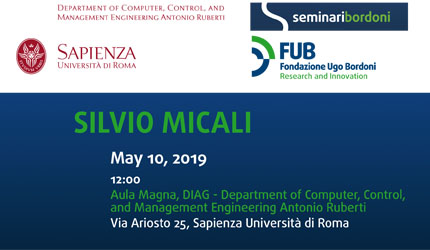
A distributed ledger is a tamperproof sequence of data that can be read and augmented by everyone. Distributed ledgers stand to revolutionize the way a democratic society operates. They secure all kinds of traditional transactions – such as payments, asset transfers, titling – in the exact order in which they occur; and enable totally new transactions – such as cryptocurrencies and smart contracts. They can remove intermediaries and usher in a new paradigm for trust. As currently implemented, however, distributed ledgers cannot achieve their enormous potential.
Algorand is an alternative, democratic, and efficient distributed ledger. Unlike prior ledgers based on ‘proof of work’, it dispenses with ‘miners’. Indeed, Algorand requires only a negligible amount of computation. Moreover, its transaction history does not ‘fork’ with overwhelming probability: i.e., Algorand guarantees the finality of all transactions.
Finally, Algorand enjoys flexible self-governance. A successful society must be able to evolve, and a cryptocurrency cannot be an ocean liner on autopilot. By using its hallmark propose-and-agree process, Algorand can correct its course as necessary or desirable, without any ‘hard forks’. Thanks to this core process, Algorand can routinely summon the contribution of each single ‘token’ for reaching any future decision.